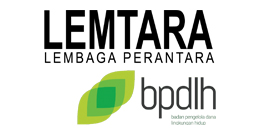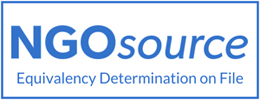Funded by
Oxfam Australia
Document
IDSD91/2024/JHM/07/01
Budget
IDR 2,489,411,932
Period
July 01, 2024 – June 30, 2025
Description
The threat of an energy crisis haunts the sustainability of economic development, both on a global scale and in Indonesia. Fossil energy resources such as oil, natural gas, and coal, which have been the mainstay in meeting energy needs in Indonesia, have increasingly dwindling stocks. On one occasion, the Minister of Energy and Mineral Resources said that if energy consumption is as large as it is now and continues to increase in the future, then Indonesia’s energy reserves from fossil fuels will run out in the next 15 years. On the other hand, Indonesia has quite large potential for new and renewable energy. According to the International Renewable Energy Agency (IRENA), the total potential for renewable energy in Indonesia is estimated to reach 3,692 gigawatts (GW). Meanwhile, based on the 2019 Indonesia Energy Outlook, the total potential for renewable energy equivalent to 442 GW is used for power generation, while BBN and Biogas of 200 thousand Bph are used for fuel needs in the transportation, household, commercial and industrial sectors. The utilization of renewable energy for power plants in 2018 was 8.8 GW or 14% of the total power plant capacity (fossil and non-fossil) which was 64.5 GW.
The government has set an energy mix policy in Indonesia to encourage the acceleration of the utilization of New and Renewable Energy. Through Government Regulation No. 79 of 2014 concerning the National Energy Policy, the target for the new and renewable energy mix in 2025 is at least 23% and 31% in 2050. In addition, the government also issued No. 112 of 2022 concerning the Acceleration of Renewable Energy Development for Electricity Provision in accelerating the clean energy transition by stopping the operation of coal-fired power plants in 2030.
However, the energy transition that is being carried out is not easy. The community, especially women and vulnerable groups, still face challenges in accessing cheap, affordable and reliable clean energy. The limited access to reliable and affordable energy in Indonesia, especially in remote areas and islands such as NTB and NTT, has had a significant impact on women. Around 20 million people in the country do not have access to electricity, leaving women to collect firewood, increasing their workload and the risk of violence as they often have to travel to remote areas. This gap is exacerbated by unfair social norms that place greater caregiving responsibilities on women, reducing their opportunities to engage in economic activities.
Through the WE FOR JET (Women and Vulnerable Group Benefited and Lead on Transformative and Just Energy Transition in Indonesia) Project, Penabulu Foundation together with four other implementing partners, namely Gema Alam, Circle of Imagine Society Timor (CIS Timor), Yayasan Pengkajian dan Pengembangan Sosial (YPPS) and Publish What You Pay (PWYP), are committed to implementing the Oxfam-supported project in Indonesia. The project aims to ensure that by 2028, women and vulnerable groups benefit and lead a just and transformative energy transition to improve their welfare and livelihoods. The interventions are carried out at various levels, from community, district, provincial, to national levels. The final objective will be achieved through four outcomes to be achieved during the project implementation period, namely:
First: Women and vulnerable groups actively contribute to the decision-making process at various levels and benefit from the Just Energy Transition;
Second: Women and vulnerable groups can access and utilize Renewable Energy, and strengthen women-led Small and Medium Enterprises;
Third: Strengthening the capacity of Civil Society Organizations, Women’s Organizations, and Disabled People’s Organizations in strengthening the voices of women and vulnerable groups Towards a Just Energy Transition in Indonesia;
Fourth: The government implements gender justice components in the national energy transition plan.
At the Provincial and District levels, this project is implemented in the Province of West Nusa Tenggara (West Lombok, Central Lombok and East Lombok Regencies), and the Province of East Nusa Tenggara (East Flores, Southwest Sumba and South Central Timor Regencies). In addition, this project also conducts advocacy at the provincial to national levels by developing various partnership models between the government, private sector and civil society.
Funding
This program is supported by Oxfam, the program period is July 01, 2024 – June 30, 2025 with total funding support of IDR 2,489,411,932,-.





